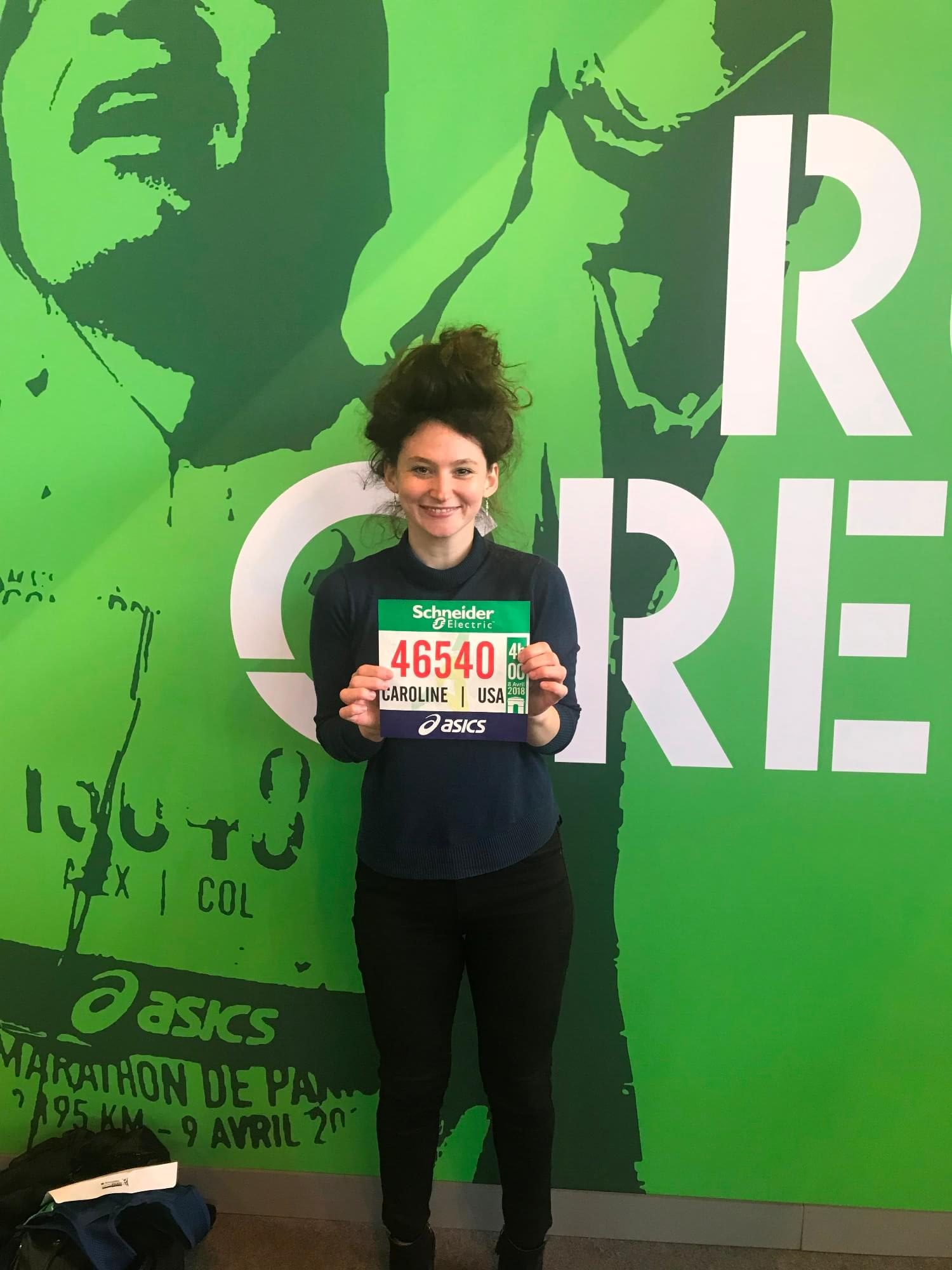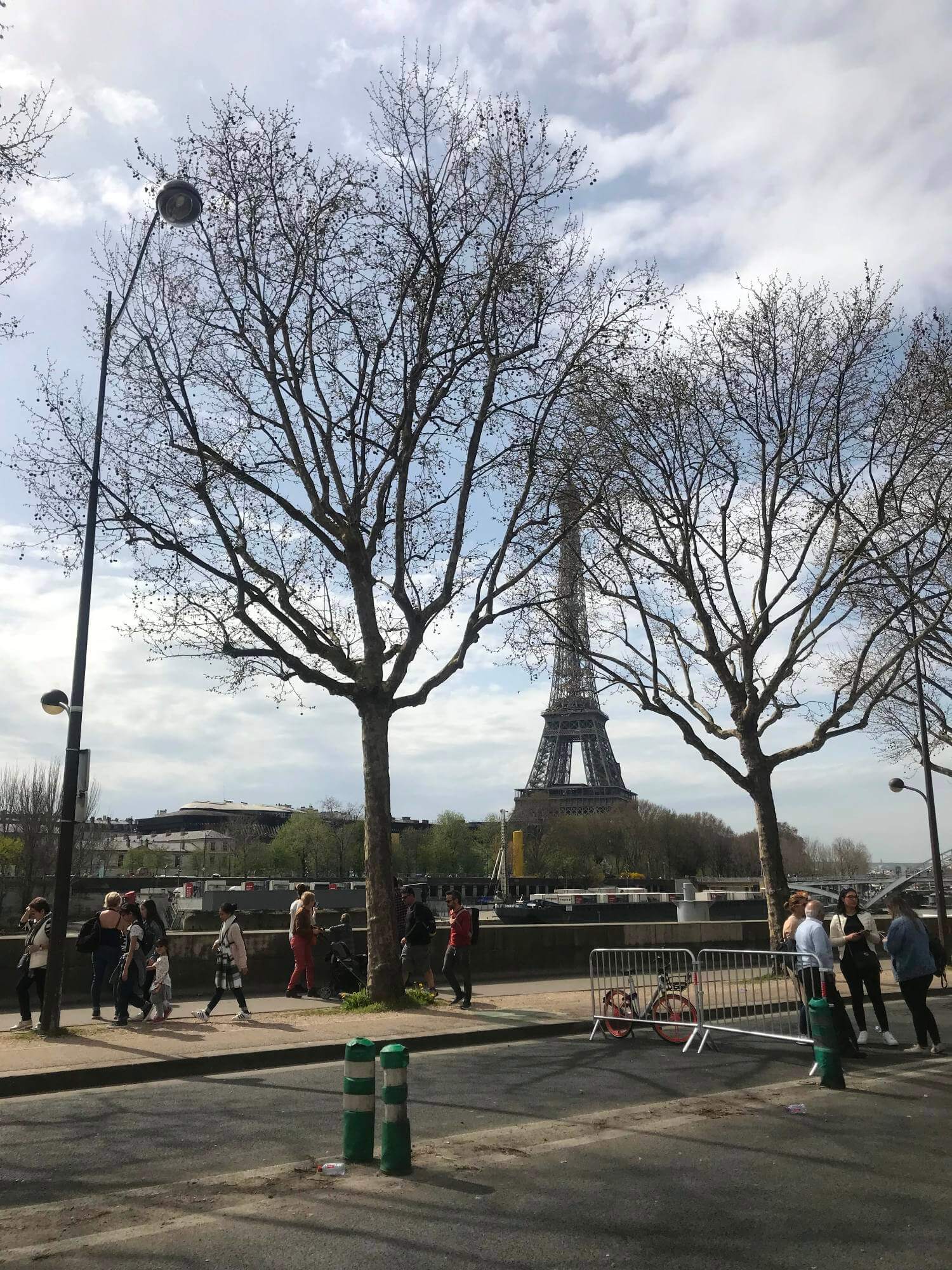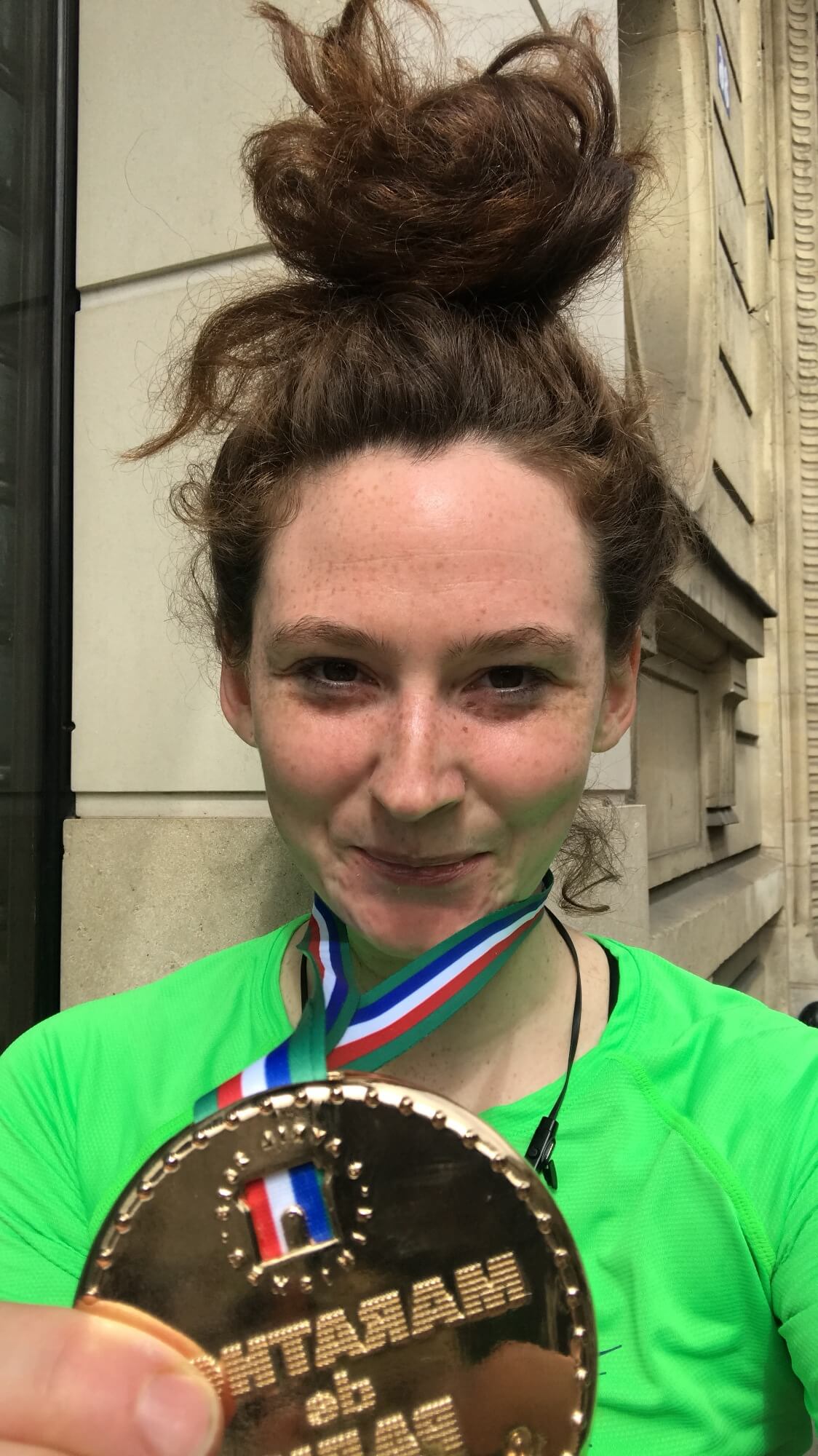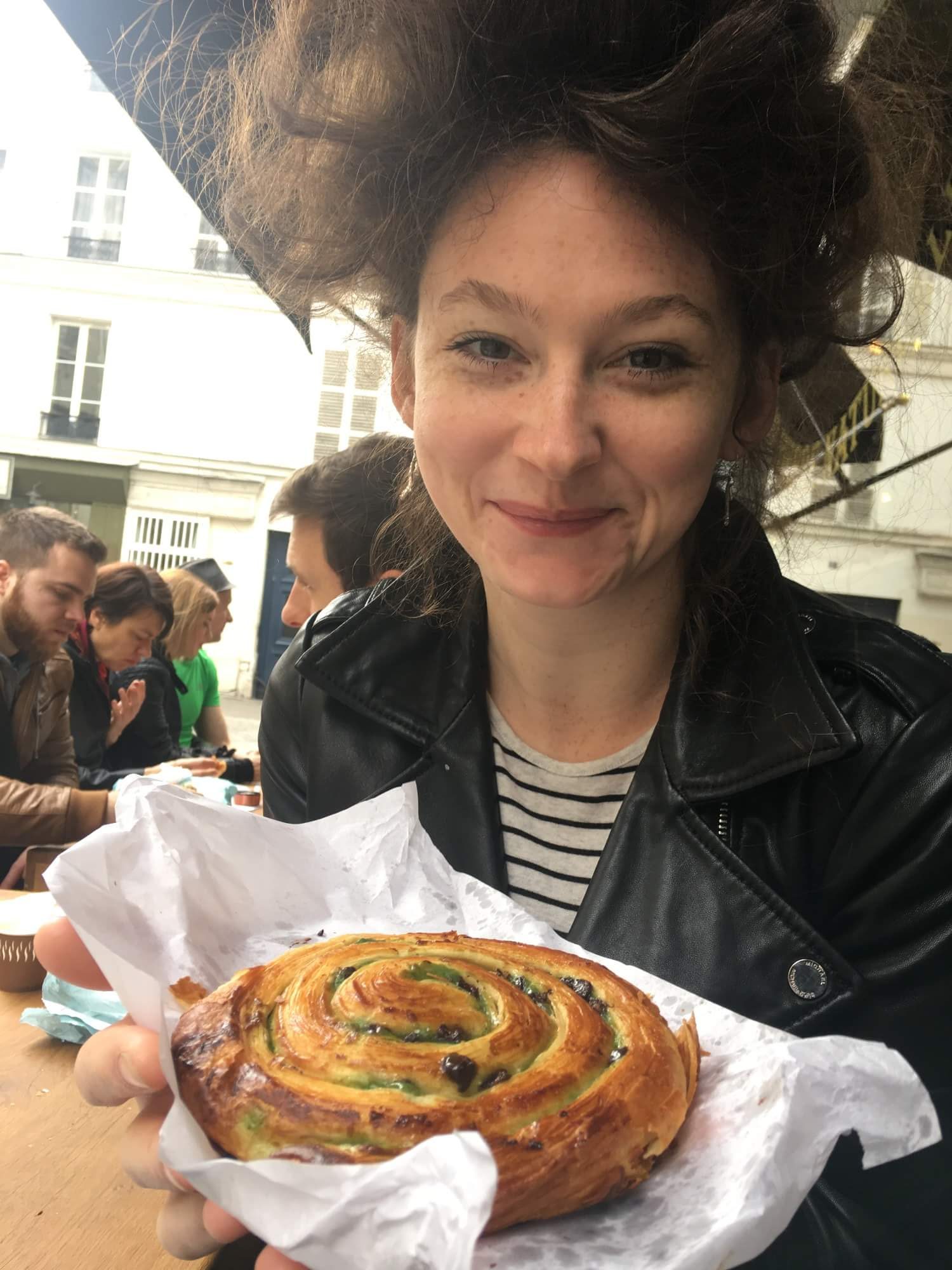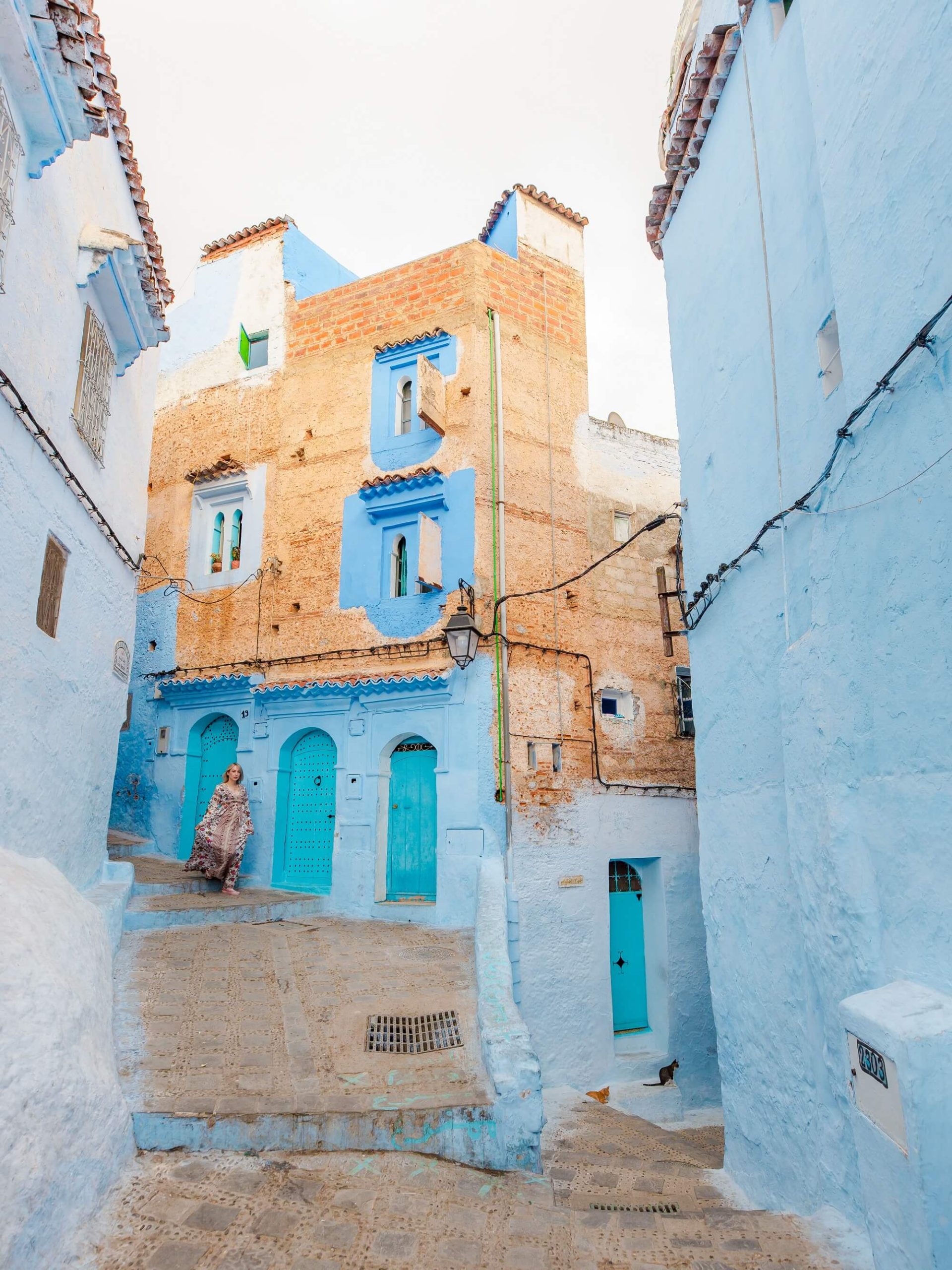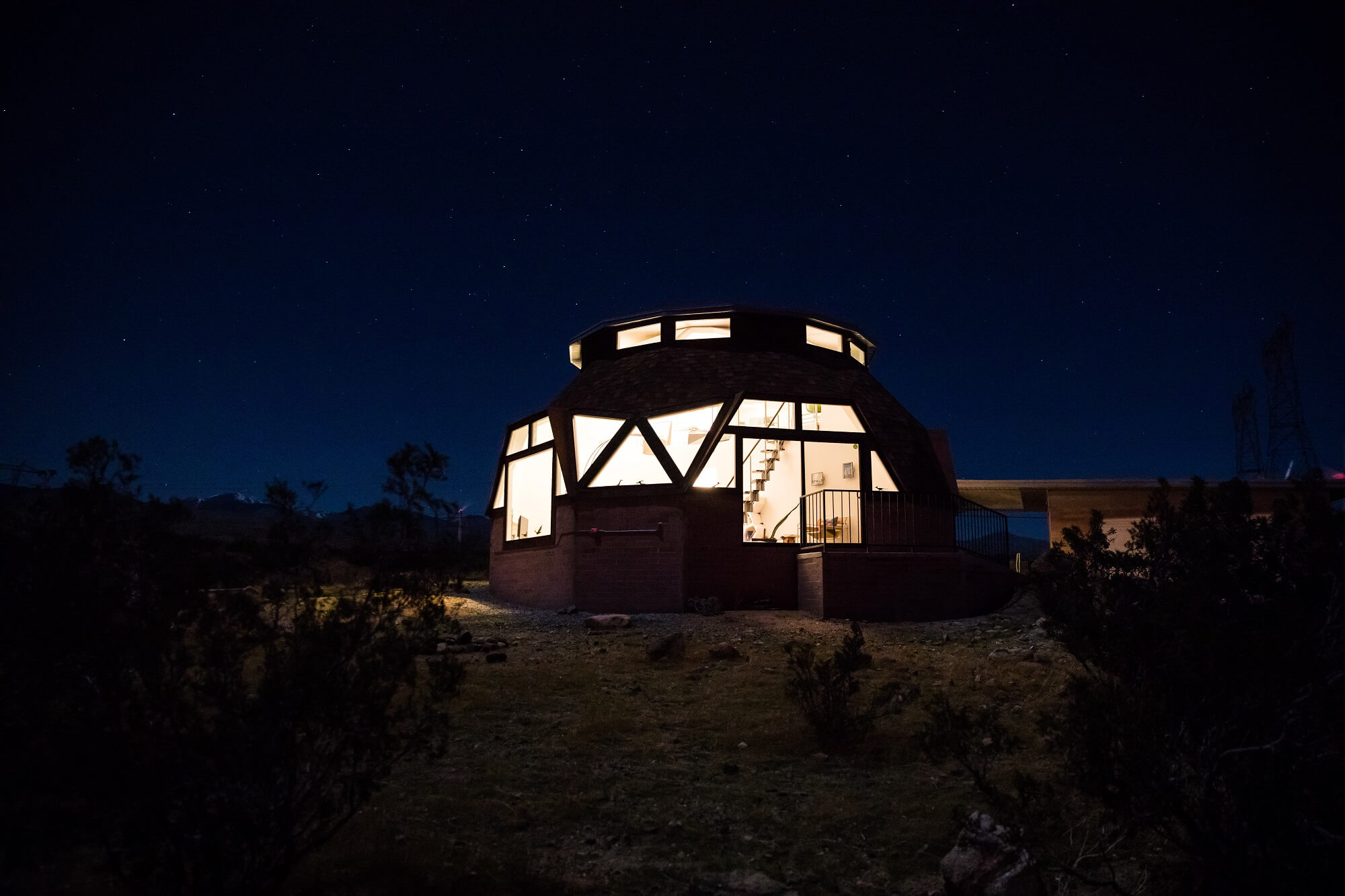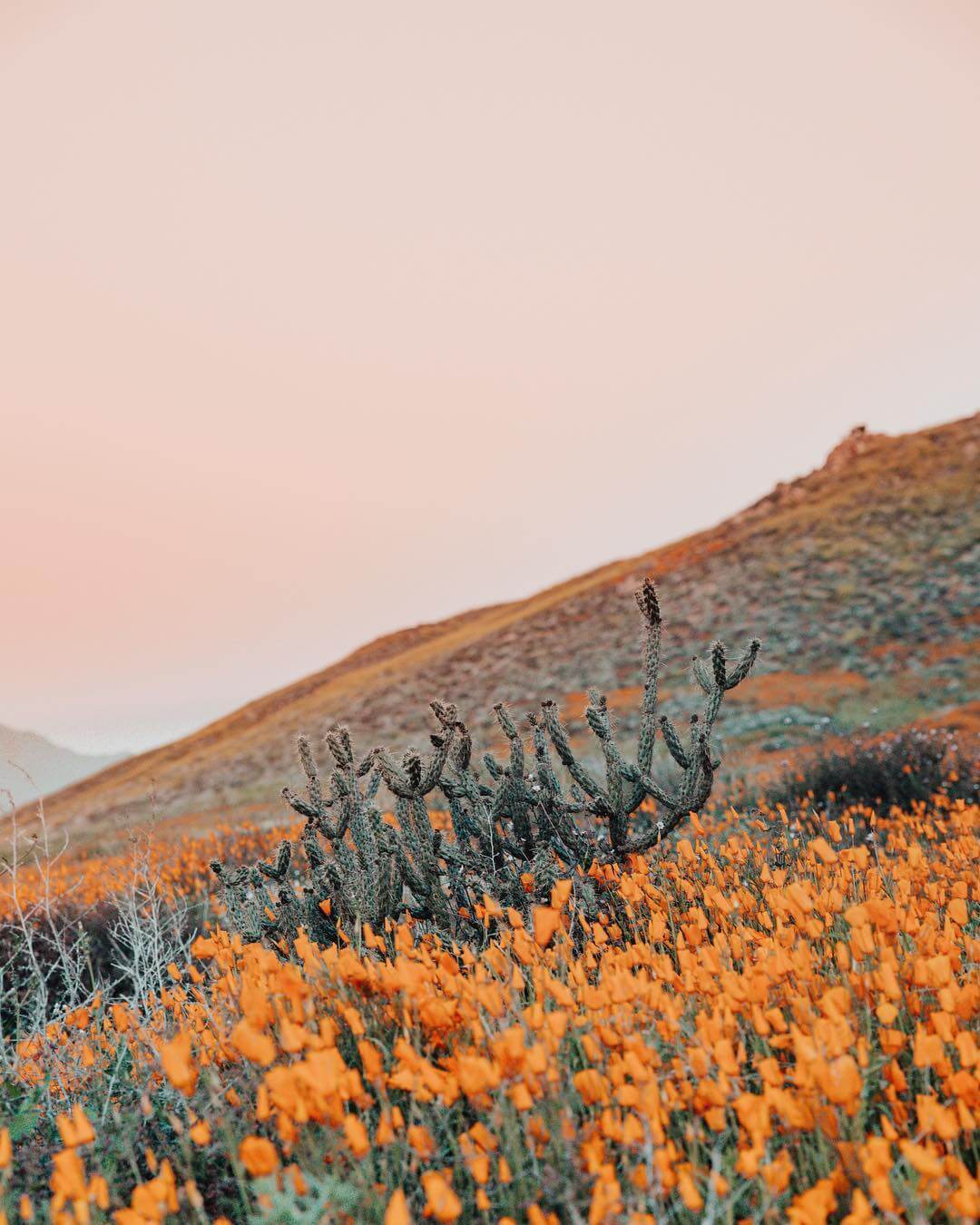Marathon tourism is how every runner should travel
26.2 miles far from home is bucket-list worthy.
“It’s like, I’m fine, I’m fine, I’m fine…and then mile 18 is when things start to hurt.”
Caroline Schiff, a chef and avid runner, is no stranger to hitting the wall when running marathons. (After all, she’s completed five in four years.)
But at her most recent race, she figured out a way to push through that had nothing to do with her training regimen or choice of gel packs.
“I was getting to that point in the race where people are starting to walk,” she remembers, “and all of the sudden to my left was the Eiffel Tower. It was really surreal.”
Yes, the marathon in question was the Paris Marathon. And if that scenario sounds like the dream—or if you’ve already logged 26.2 miles at home and are looking for your next challenge—it might be time to consider marathon tourism.
“We all deserve a vacation, but there’s something about accomplishing this big thing right at the beginning of it that made it feel extra special.”
The premise is simple: Find a destination you’ve been dying to visit, look up if they’ve got any races there, and then combine the two. Think of it as vacation with benefits. “It made the trip feel really, really rewarding,” says Schiff of her French holiday. “We all deserve a vacation, but there’s something about accomplishing this big thing right at the beginning of it that made it feel extra special. You feel like you earned those pastries and meals and leisure time.”
Of course, it’s not quite as simple as booking a flight and showing up (unless that’s your general travel ethos). “Doing a marathon in your home city alone is daunting enough—the first two times you run a marathon you’re wondering, can I finish this? So doing it on your home turf to begin with is comforting,” suggests Schiff. “Being that this was my fifth one, I felt like I knew that physically it was something I was comfortable doing. So I thought, okay, I can finally branch out from the New York Marathon.” (She also previously ran the New Orleans Marathon.)
Sounds like you? Here’s what Schiff learned about traveling for a marathon—read carefully before lacing up abroad.
![Set your intention "My coach, who I've worked with for three out of the five marathons I've run now, she's done a bunch of international marathons and she goes in it to win it. She has amazing personal records. And obviously she's a professional and this is what she does and her goals are very different than mine. But it's absolutely possible to get off the plane Friday morning and run a stellar race on Sunday. Much of it is mental. I had put myself in a mental place way ahead of time where I decided, Running the Paris Marathon is going to be fun, I'm going to enjoy it and stop to take a photo of the Eiffel Tower if I want [laughs], and my body's not going to be destroyed. If you do an international race and you want to have fabulous time, you can totally do that too."](https://the-glassy.net/wp-content/uploads/2018/09/paris-marathon-4-e1537978449715.jpg)
The look of someone running the Paris Marathon
Find your destination
“I chose to do the Paris Marathon for a few reasons. For one, it was a slightly more comfortable international race for me to do; I was a French major and I’ve been there before so I knew the language and the transportation system. Also, every marathon is different in terms of getting in—in the US the Boston Marathon is really difficult to get into, the New York Marathon isn’t as exclusive but it’s really expensive to do. When I looked up the Paris Marathon, it was really easy: There’s an open registration, you pay a small fee—it was 90 euros, which for a marathon isn’t a lot of money–and you don’t have to qualify or fundraise or anything like that. Plus, if you’re going to fly all that distance, you might as well create a vacation out of it. So it was a combination of factors: great destination, some familiarity, and I didn’t need to jump through all these hoops to get into the race.”
But honestly, don’t worry about language barriers
“I don’t think language should stop you at all. If you do your research ahead of time and you know, ‘This is where I need to go to get my bib, this is the paperwork I need to bring, this is where the start is and I have to get there at this time,’ I think you’ll be fine. The cool thing is marathons really bring people together—they’re such international events—so if you don’t speak the language, there are also a ton of other people there who don’t speak the language…and a ton of people there who can help you.”
“If you’re going to fly all that distance, you might as well create a vacation out of it.”
Take that PTO
“If you’re going to fly all that distance, you might as well create a vacation out of it. Also, don’t just show up the day before and think you’re going to get your bib number and have a great race…because you won’t. I left New York on a Thursday, I arrived on a Friday, and the race was on Sunday. That was a good amount of time. If you have luxury to get there a little earlier, take it—I would have loved to have had three days before to just totally relax.”
Don’t book your flight back for the next day
“One of the worst things you can do the day after a marathon is to not move, because you’ll just make your soreness so much work. The best thing you can do the day after a marathon is walking around—it really does help your muscles recover and it will lessen soreness. So tack on those [vacation] days at the end if you have the luxury of time. The day after the Paris Marathon I slept in, took a short walk to a famous bakery that had been on my to-see list, and got plenty of treats.”
- Views from bib pick-up and mile 18
Set your intention
“My coach, who I’ve worked with for three out of the five marathons I’ve run now, she’s done a bunch of international marathons and she goes in it to win it. She has amazing personal records. And obviously she’s a professional and this is what she does and her goals are very different than mine. But it’s absolutely possible to get off the plane Friday morning and run a stellar race on Sunday. Much of it is mental. I had put myself in a mental place way ahead of time where I decided: running the Paris Marathon is going to be fun, I’m going to enjoy it and stop to take a photo of the Eiffel Tower if I want [laughs], and my body’s not going to be destroyed. If you do an international race and you want to have fabulous time, you can totally do that too.”
Train accordingly
“Study the course and study where your elevation is, where your uphills and your downhills are, where you’re just going to be flat, where it looks flat but it’s actually a slow incline.”
“It’s absolutely possible to get off the plane Friday morning and run a stellar race on Sunday.”
Pack smart
“I packed my regular favorite outfit and another option, and I figured I would see what the weather was and make my decision from there. If you don’t know that you can get your [gel] brand that you like and that you’ve been training with, then bring it with you too. Same with your meal the night before and breakfast the day of: If you don’t know for sure that you can find something that you feel good about, you should totally bring it.”
Google Maps is your BFF
“If you don’t have the actual, personal familiarity and experience in that city, then just really do your research. Look at the public transportation options before you go, look at where the start is, look at restaurants near your Airbnb where you can get a healthy meal that’s suitable for race day, map out how you’ll get from your Airbnb to the expo—and then have all the Google Maps saved on your phone.”
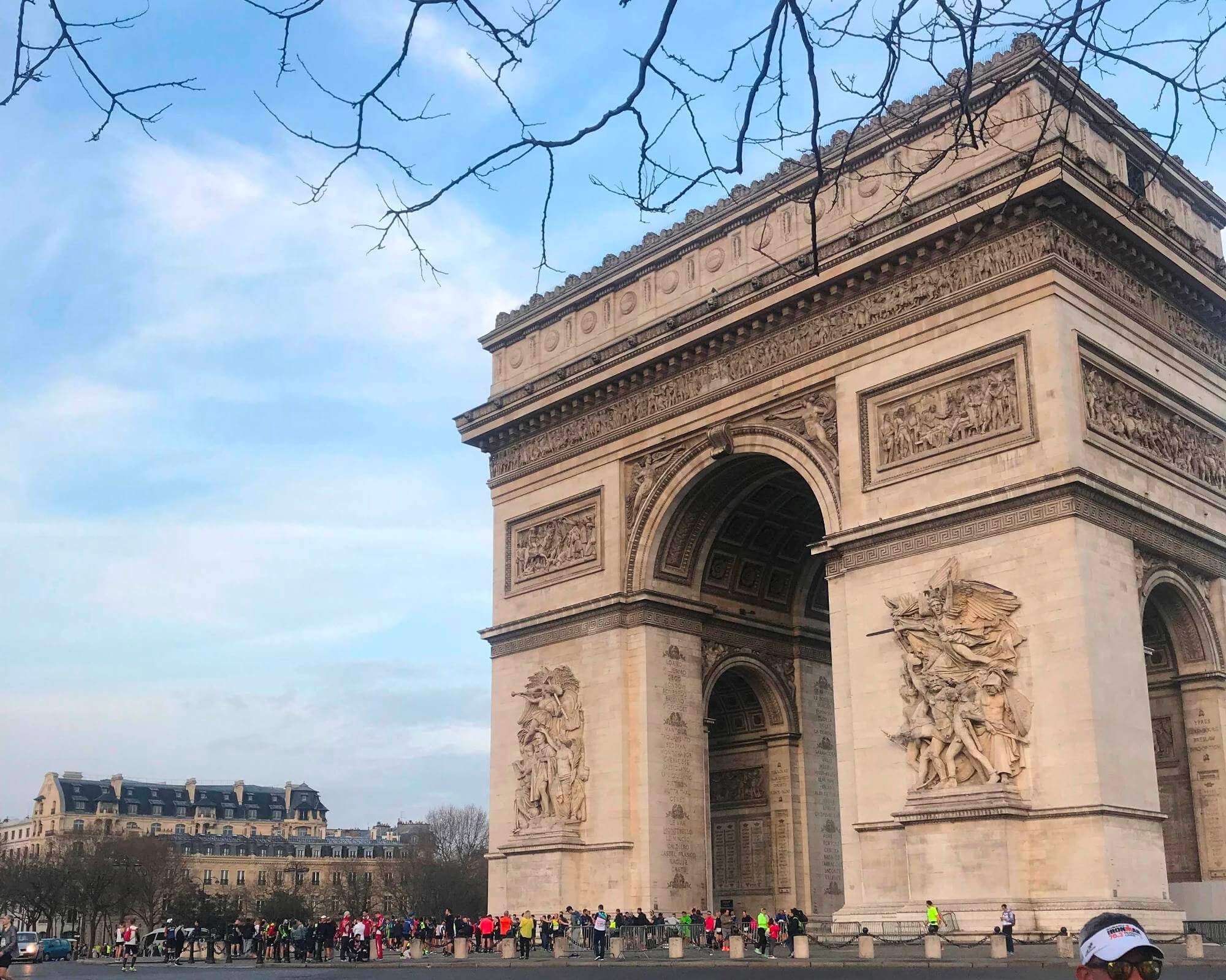
Marathon tourism means starting line views like this
Double-fist water on the flight
“Normally I don’t think about my hydration because I know my body, but with traveling for a marathon I had to be conscious of my fluids. I always find planes to be dehydrating, so I drank way more water than usual.”
Save the tourist stuff for after
“There’s this temptation to walk around and explore when you arrive somewhere new, but if you’re going to be serious about your marathon time you have to resist the urge to do that. Save stuff for after the race. Before the race, do stuff that’s relaxing and doesn’t force you to be on your feet—like going to the theater—so you can get some cultural experience without exhausting yourself beforehand.”
Airbnb > hotel
“I would encourage people to go the Airbnb route, because you can make the things exactly as you would at home. You don’t want to wake up on race day morning and eat something you’ve never had before and then run 26.2 miles. You can make your own cup of coffee in the morning, if you want to do overnight oats you can do that….”
- Run first, tourist after
Expect the unexpected
“Home court advantage is real. I know the New York Marathon really well—I know the start, I know the finish, I know each mile, I know what I’m getting myself into. In Paris, I was like, I’m running on cobblestones…I feel like I’m going to slip and break my ankles. There weren’t as many water stations–in New York you know you’re going to get water, like, literally throughout the race, whereas in Paris you only got it every seven miles. And then the fuel stations: They had nuts, dried apricots, and fresh orange slices! Only the French would still be thinking about food for running a marathon and make sure that they have nice things to eat that aren’t Power Bar gels, you know?”
Be in the moment
“When you get to the start of the Paris Marathon, it’s at the Arc de Triomph at the top of the Champs-Elysees. You go through so many historic parts of the city—through a park that has an old chateau in it, past the Seine, past the Eiffel Tower. All I could think was, wow, I’m so lucky to have the privilege to do this. Not just that I could buy the flight and come over here and sign up and do this, but I have the physical privilege; I’m a healthy, able bodied person who can do this for the pure joy of it in this magic city.

